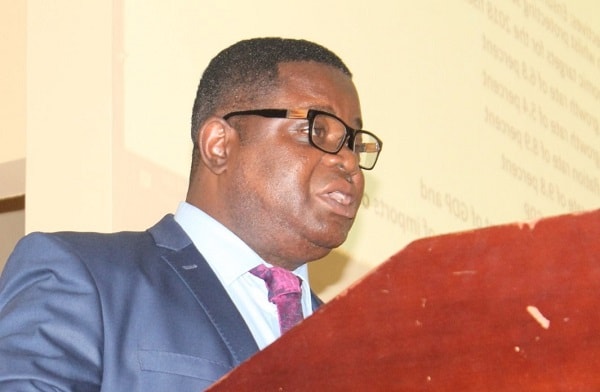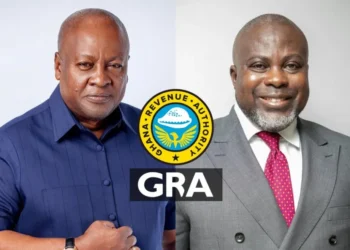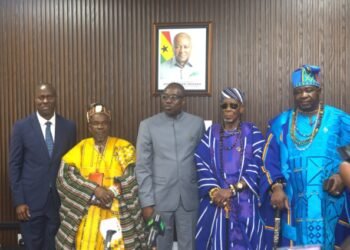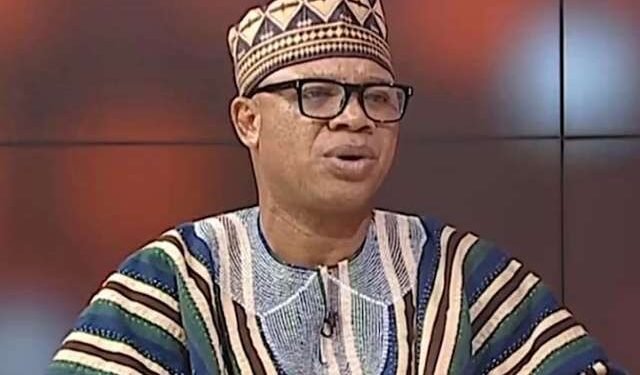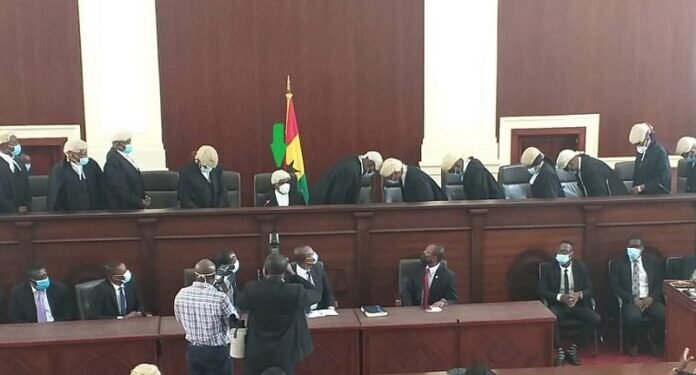Professor Peter Quartey, an Economist and Director of the Institute of Statistical, Social and Economic Research (ISSER), has called on the government to appoint competent people to manage the new development bank it intends to establish.
He explains that, as the financier, the government can only achieve its aim of establishing the Bank if it appoints the right people. Moreover, he indicated that such people should not be appointed based on party colors or on any other basis except competence.
“The government is going to appoint the board. But, what is critical is that government must ensure that the right people are put there. It will be comforting for government to get competent people to make the Bank viable and sustainable.
“So again, who you appoint into management is going to determine whether it’s going to be successful or not. Governments come and go, but if they all agree to appoint competent people, that should work well”.
The ISSER Boss revealed this to The Vaultz News whilst sharing his views on government’s intention to establish the new development bank.
Earlier this month, Finance Minister, Ken Ofori-Atta hinted that by the end of July this year, the country will have a new Development Bank. According to the minister, this bank will provide long-term wholesale financing to the private sector through Commercial banks.
Need for a Development Bank
The ISSER Boss has, meanwhile, thrown his weight behind the government’s idea of establishing the bank. He justified that the country needs a development bank to be able to provide long-term finance to businesses to boost the economy. Also, he explained that the development bank is very important especially at a time when the pandemic has affected the business environment.
Moreover, he explained that the Agricultural Development Bank and the National Investment Bank are currently operating as universal banks; as such, they are serving the retail market, thus, doing short-term financing.
“We don’t have a development bank as we speak now. Businesses like manufacturing, construction, agriculture need long term loans or long-term financing”.
He further explained that the government had two options. These options were to either establish a new development bank or to convert the NIB and the ADB back to development banks.
“That will mean changing their licenses and that will create problems. They have been engaged in universal banking for about 10 years now. If you now ask them to go back and do it, that it will create problems”.
New NDB should feature in government policy
Furthermore, he indicated that the NDB should feature prominently in government policy. This, according to him, is because it’s going to finance government and private sector projects that are viable.
“So, yes, it can influence government policy… Some of the government policies are aimed at private sector development”.
Also, he advised that the government should follow the Bank of Ghana’s policy on corporate governance. He explained that this policy will ensure that board members serve for a specific period of time. This, according to him, will help limit the political interference in the management of the bank.
“If they respect this corporate governance policy, then, we will have some continuity”.
Achieving Financial sustainability
Meanwhile, a rating agency, Fitch, has identified financial sustainability as one of the major challenges facing African Development Banks. However, Prof. Quartey believes appointing competent people who will run the Bank as a business will help overcome this challenge. He explained that competent people will ensure that the bank follows the proper procedures before giving out loans.
“Once that is done, then you will be profitable. But, if they don’t follow the necessary processes then the bank may not achieve its aim. The loans go bad and it will affect your capital. If that happens, financially, you will not be sustainable. So, financial sustainability will happen only if it’s managed as a business”.
Moreover, NDBs play significant roles in economic development. Countries normally establish NDBs to close the financing investment gap in agriculture and industry. Also, NDBs serve as a link between international financial institutions such as the IMF and countries. This is because these institutions extend assistance to the countries via these banks. As such, the World Bank has encouraged the establishment of development banks. By providing assistance to small enterprises, NDBs serve as a stimulus to rapid economic development.
READ ALSO: NDC condemns assault on journalist

